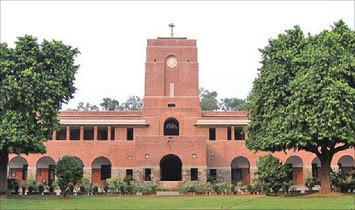Amidst the hustle and excitement of the new academic year, St. Stephen’s College faced serious allegations of exceeding the limit set on admissions through the minority Christian quota. Two months later, the Delhi High Court ruled that admission should be granted to 18 out of 19 students, concluding that one student’s admission exceeded the five per cent limit.
St. Stephen’s College alleged in the Delhi High Court that Delhi University failed to confirm the admissions of 19 candidates under the Christian quota. The college had allocated seats to students by considering 13 specialisations under the larger Bachelor of Arts Program course as a single course. The college claims to have sent its list of selected Christian candidates on August 24th, 2024. However, the students still needed to receive fee payment links on their portals, implying that their admissions remained unconfirmed. Furthermore, the college mentioned that it operates under Article 30 of the Indian Constitution, which safeguards the right of minority communities to establish and manage educational institutions. The college argued that the university’s interference with its admission process violates the institution’s constitutionally enshrined right.
Delhi University countered by stating that St. Stephen’s College was misappropriating the minority quota. The University stated that despite operating under Article 30 guidelines, the college cannot surpass the five per cent limit set for admissions through the Christian quota.
The court found that in Hargun Singh Ahluwalia vs. v. Delhi University & Ors., it was held that the 13 subject combinations within the BA Program Course were distinct programs, having different seat matrices. Hence, the seat matrix provided by Delhi University is to be followed by all colleges without any deviation. St. Stephen’s decision to formulate a new matrix by treating all 13 subject combinations as a singular program, was thus, not in line with previous judgements. Justice Jaswant Sharma, thus ruled that,
“St. Stephen College, being an aided minority educational institute also, cannot claim to have absolute unbridled powers to exercise discretion against the policies framed by the University to which it is affiliated.”
The Court also found 14 students to be eligible as per the seat matrix. Four students were admitted by applying the five per cent excess allocation policy. One allocation was, however, found to be beyond the specified seat matrix, since the college had admitted six students in the BA Program (Economics + Political Science), while only five allocations were permitted within the seat matrix prescribed by the University.
Therefore, the judgement emphasises that although St. Stephens is a minority institution with a certain degree of autonomy, it must adhere to the regulatory framework set by Delhi University.
Read Also: St. Stephen’s College Faces Allegations over Minority Quota Violations in Admission Process
Featured Image Credits: Hindustan Times
Sakshi Singh





Comments are closed.